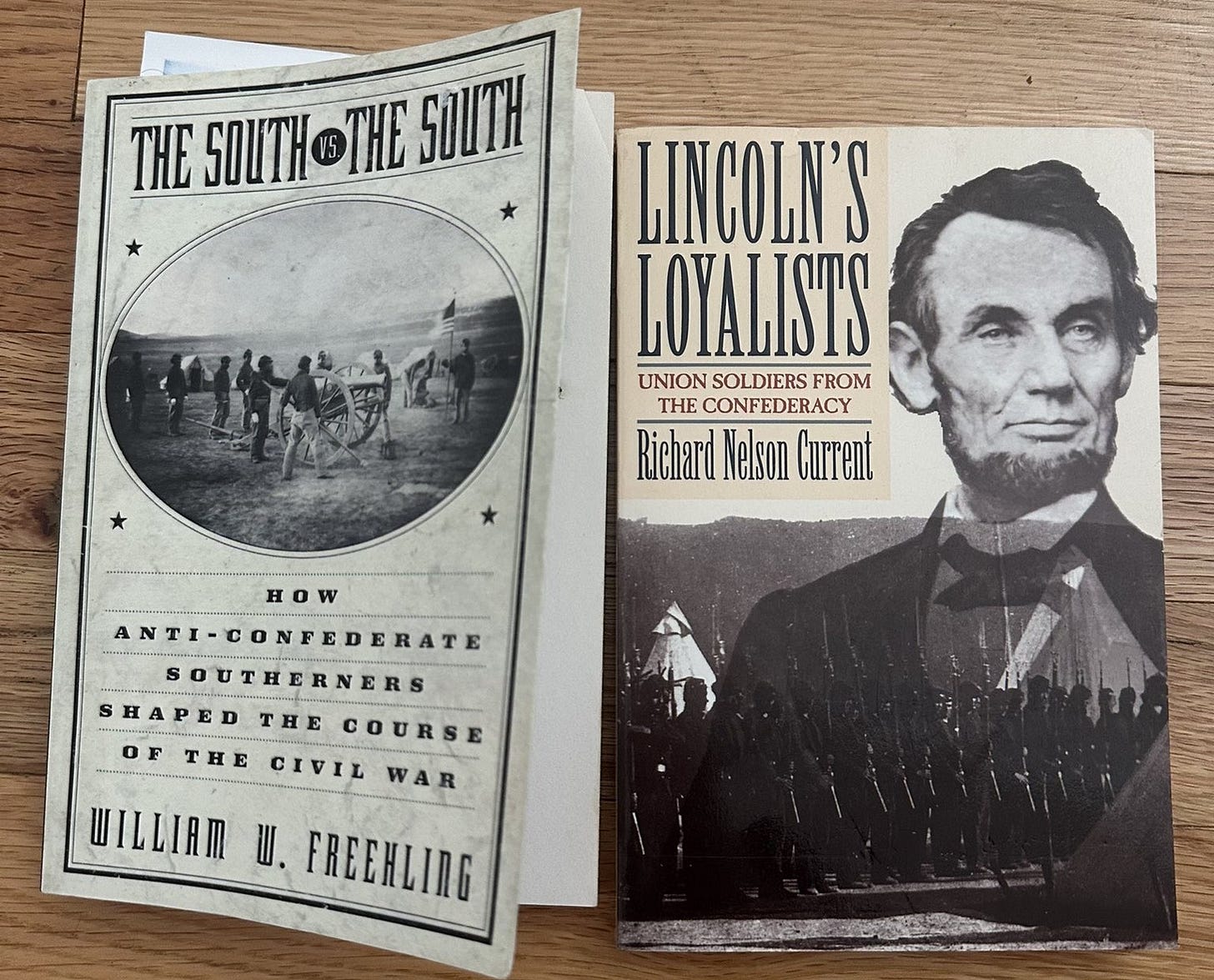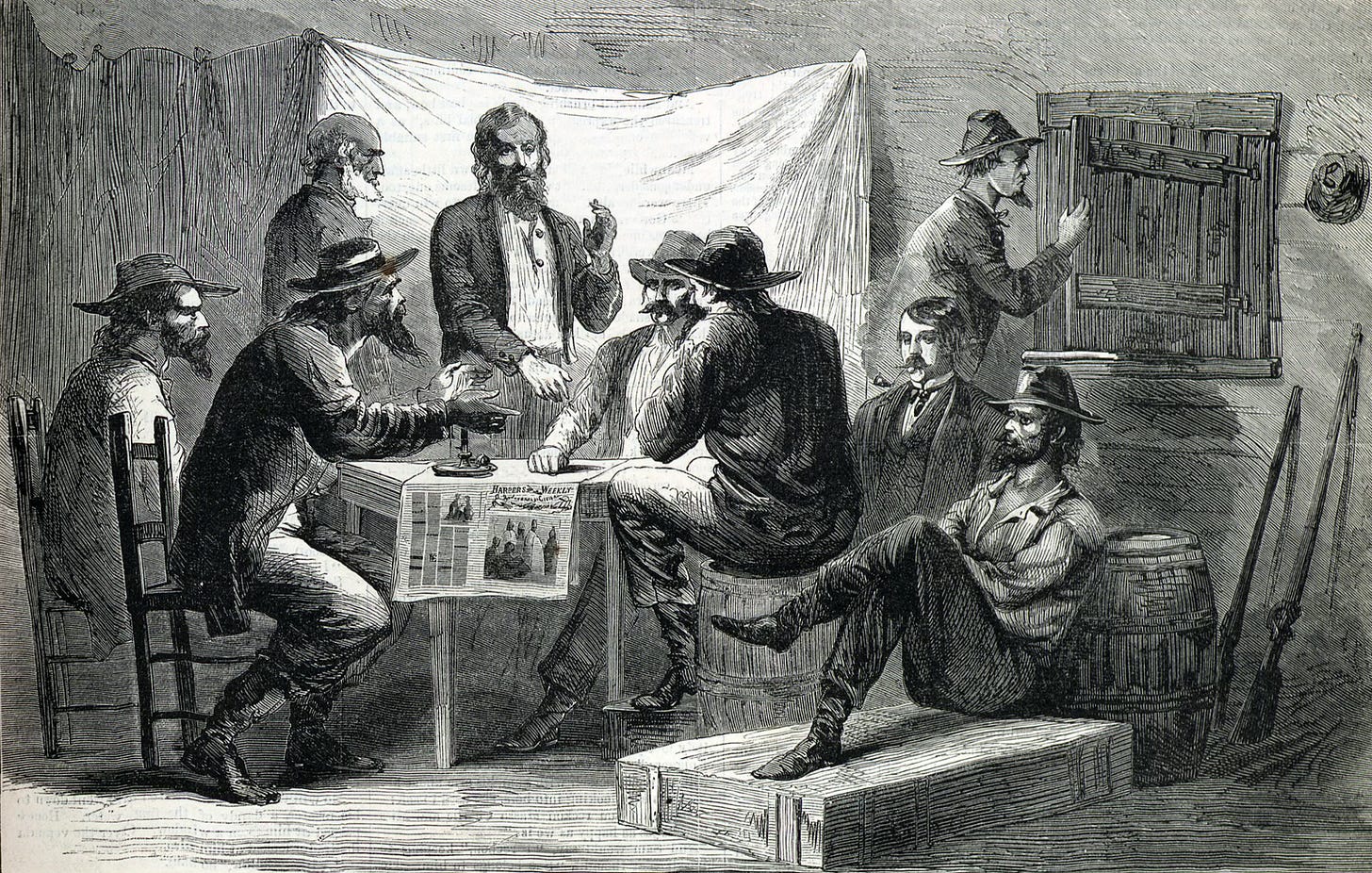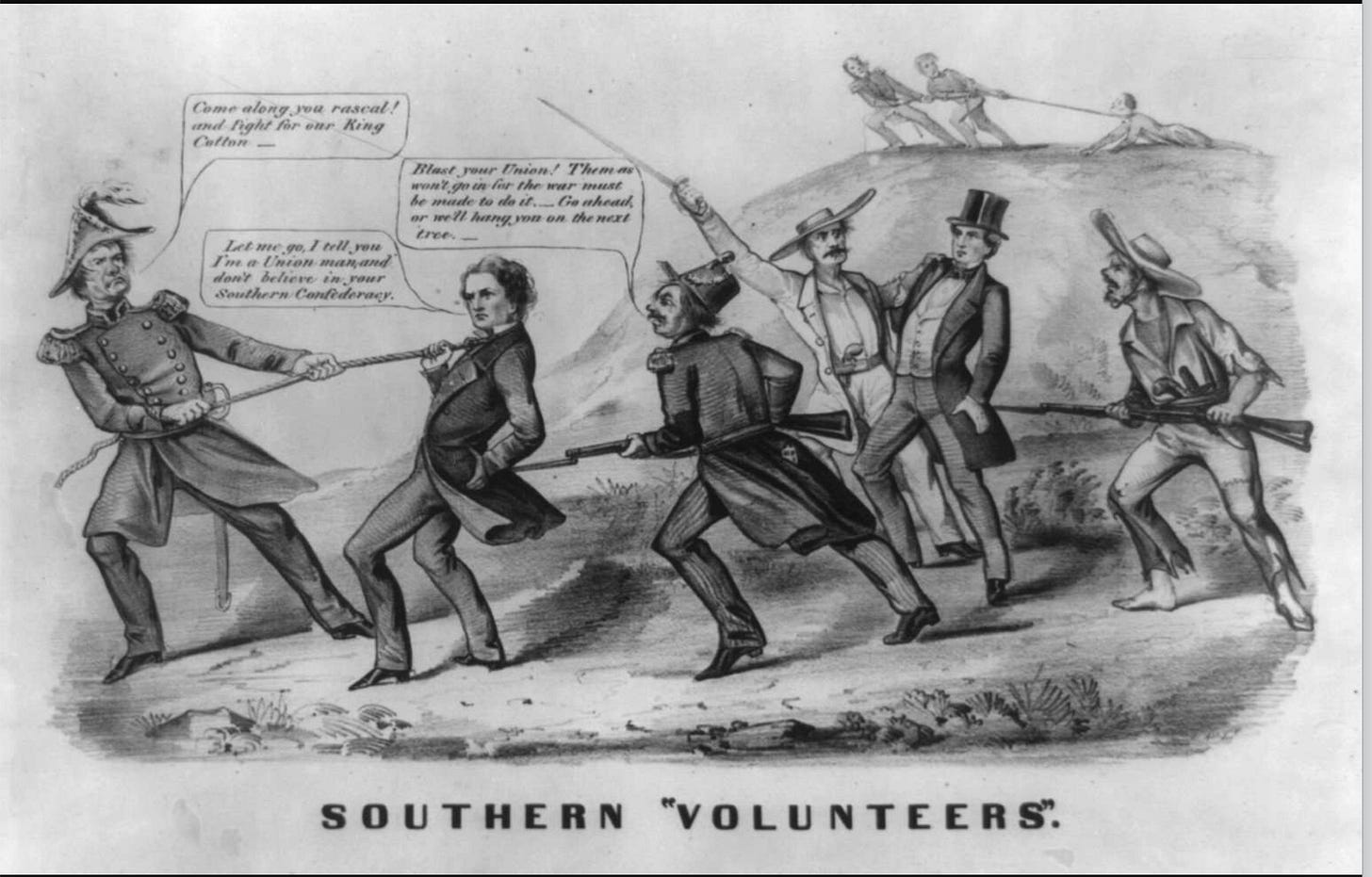Growing up in Massachusetts, we learned a ton about the Revolutionary War. But the Civil War did not receive significant attention, and there was certainly no particular pride about that aspect of our Commonwealth’s history.
There are natural reasons for this. After the war, the Union wanted … well, Union. So the Lost Cause narrative went unchallenged.
And it continues:
The Pentagon is restoring a portrait of Gen. Robert E. Lee, which includes a slave guiding the Confederate general’s horse in the background, to the West Point library three years after a congressionally mandated commission ordered it removed, officials said.
The 20-foot-tall painting, which hung at the United States Military Academy for 70 years, was taken down in response to a 2020 law that stripped the names of Confederate leaders from military bases.
That legislation also created a commission to come up with new base names. In 2022, the commission ordered West Point to take down all displays that “commemorate or memorialize the Confederacy.” A few weeks later, the portrait of General Lee with his slave in the background was placed in storage.
Civil War Echoes in Strategy
I’ve been following a recent debate between Matthew Yglesias and Waleed Shahid on what modern-day Democrats can learn from the roles played by Radicals and Lincoln’s moderates in the 1850s and 1860s.
Waleed Shahid, the Justice Democrats founder who has been writing compelling pieces about how varied roles of factions within the Democratic, applied his perspective to the pre-Civil War Republicans: Progressive Electoral Strategy (1850s Edition): How radicals, moderates, and conservatives fought over safe seats, swing states, and the soul of the Republican Party.
Matthew Yglesias put this comparison into proper context with “Your cause is not the moral equivalent of fighting slavery: Against abolitionist cosplay”.
Shahid’s piece is great historical writing and, zooming out to 50,000 feet, I think it aligns with a lot of Shahid’s early work with the Justice Democrats.
The premise of A.O.C.’s primary campaign against Rep. Joe Crowley wasn’t that left-wing politics was poised to take Iowa by storm. It wasn’t denialism about the electoral benefits of moderation. It rested instead on the notion that left politics was correct on the merits and that there were a lot of seats like Crowley’s where the political geography would easily support a more left-wing candidate than the incumbent. Crowley, like a lot of members in safe seats, was not progressive-maxing, even though he could have gotten away with it. The idea was to find seats like that and elect smart savvy left-wingers to them in hopes of altering the trajectory of policymaking.
This all, I think, makes sense. Except it also raises what I think is the deeper problem of contemporary progressive politics: In this analogy, what is slavery?
Today’s left lacks a singular focus
The abolitionists of the 1850s wanted to abolish slavery. The most moderate Republicans bent over backwards to try to reassure white people that they had zero interest in racial equality or in meddling with slavery in the existing states but merely wanted to exclude it from the new territories of the American West.
The tensions within the party were about slavery, but the focus on slavery was also the basis of the collaboration. Lincoln was a moderate — at least, he certainly was not a Radical — and he was from the Midwest rather than the G.O.P.’s Yankee strongholds. His nomination was a deliberate effort to win, the logic of which the Radicals largely accepted.
How does this apply to today?
The problem, though, is that in factional disputes, the left tends to take whatever issue we happen to be talking about at the moment and imbue it with the moral fervor of slavery. The relationship should be symmetrical: If there is no single issue that is as worthy of single-minded focus as slavery, then it’s also the case that on each individual issue, a sane political party ought to be more flexible and pragmatic than Republicans were about slavery.
But today’s Democratic ecosystem is not a sane party organized to win. Shahid responded with “What Yglesias Gets Wrong About the 1850s: Republicans forged purpose out of disparate interests and factional conflict.”
All are worth reading.
Appropriate Pride
Lauren Harper Pope wrote about Lincoln and “The Morality of Moderation” earlier this year. And my summer reading has echoes the Yglesias & Shahid posts: history books about the Civil War that feel analogous to our current time.
They highlight the inverse of Southern Lost Cause and Northern Pride concepts: the theory that it was actually Southern Unionists who decided the war.
This echoes Welcome’s thesis: picking off a relatively small slice of supporters in your opponent’s territory can be decisive, and highly leveraged, in a long-term battle among relatively even combatants.
The reasons to avoid prideful displays of Union victory are somewhat similar today as they were in 1865. But give a listen to Marching Through Georgia, and its celebration of Southern Unionists.
Yes and there were Union men who wept with joyful tears,
When they saw the honored flag they had not seen for years;
Hardly could they be restrained from breaking forth in cheers,
While we were marching through Georgia.
Avoiding intensive displays of Union pride is prudent, in 1865 and today. But we should still oppose portraits of Robert E. Lee portraits, and channel the decisive sacrifice of the Southern Unionists.
889 days until the First In The South primary in 2028.
Secret Meeting of Southern Unionists - Harper's Weekly, August 1866
1862 cartoon mocking Confederate conscription, showing soldiers forcing a Southern Unionist to fight for “King Cotton.” He protests his loyalty to the Union, but is threatened with hanging if he refuses. It was published in response to the Confederacy’s draft.






